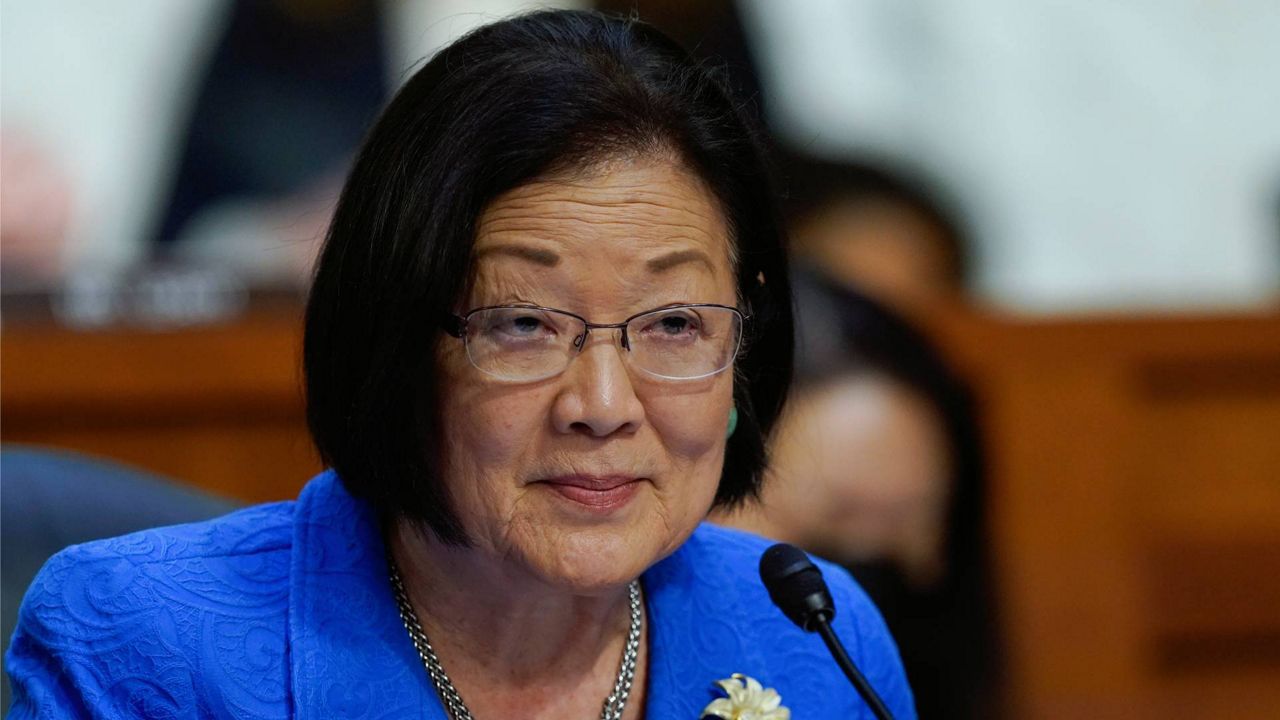WASHINGTON — During a Senate Judiciary hearing on Thursday, Hawaii Sen. Mazie Hirono questioned FBI Director Christopher Wray about sex trafficking and its disproportionate impact on Native Hawaiians in her state.
While Hirono did question Wray about a number of other national issues, she wanted assurances that the FBI was aware of the issue of child sexual exploitation among Native Hawaiians and would be working to address it.
“This kind of exploitation impacts Native Hawaiian children in the state of Hawaii disproportionately," she said. "According to the Office of Hawaiian Affairs, Native Hawaiian women and girls represent 67 to 77% of sex trafficking victims identified a region studies. Native Hawaiians also represent 37% of reported child sex trafficking cases."
Hirono, a Democrat, was referring to a 2020 study by the Hawaii State Commission on the Status of Women.
The study, conducted in partnership with Arizona State University, found that one out of every five sex trafficking victims had been sex trafficked as a child. Of the victims identified in the study, more than 20% were male and nearly 25% of the victims reported being victimized by a family member.
The study identified sex trafficked victims were on Oahu (45.4%), Maui (23.7%), Hawaii Island (20.6%), Kauai (6.2%) and Molokai (3.1%). With 23% being sex trafficked before the age of 23. The average age of first sex trafficked victims began at age eleven-and-a-half.
Responding to Hirono’s questioning, Wray said that the FBI’s Honolulu office was “working on that issue.”
“I think it was just this past week; our Honolulu office recovered three minor females who went missing and were at risk on the Big Island,” Wray added.
The director dodged questions Hirono asked about addressing “easy access to AR-15s” but did talk about efforts to address gun crime in Hawaii.
“What they are seeing, what they told me, is that they’re seeing guns, gangs and drug trafficking organizations exploit vulnerable victims … The lion's share of that is on marginalized sectors, especially Native Hawaiians,” Wray said.
In an exclusive interview with Spectrum News last month, Hawaii Rep. Ed Case, D-Hawaii, highlighted the importance of addressing crime in Hawaii as a priority.
“Crime, which is a huge issue both in Hawaii and nationally, we have tried very hard to respond with responsible regulation of assault weapons and reasonable background checks," Case said. "And that's a frustration for me, as well, to be so completely out-of-step with the rest of the world."
In June, Congress passed the first major federal gun safety regulations in decades. President Biden later signed the legislation, which includes millions in funding for mental health and school safety, into law. Case, Hirono, Rep. Kai Kahele and Sen. Brian Schatz all voted in favor of the bill, known as the Bipartisan Safer Communities Act. All four members of Hawaii’s congressional delegation are Democrats.
Angi Gonzalez provides political news coverage from the Spectrum News Washington, D.C. bureau on issues and lawmakers from Hawaii.



